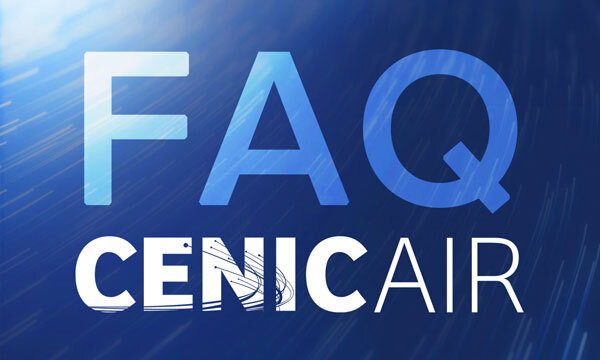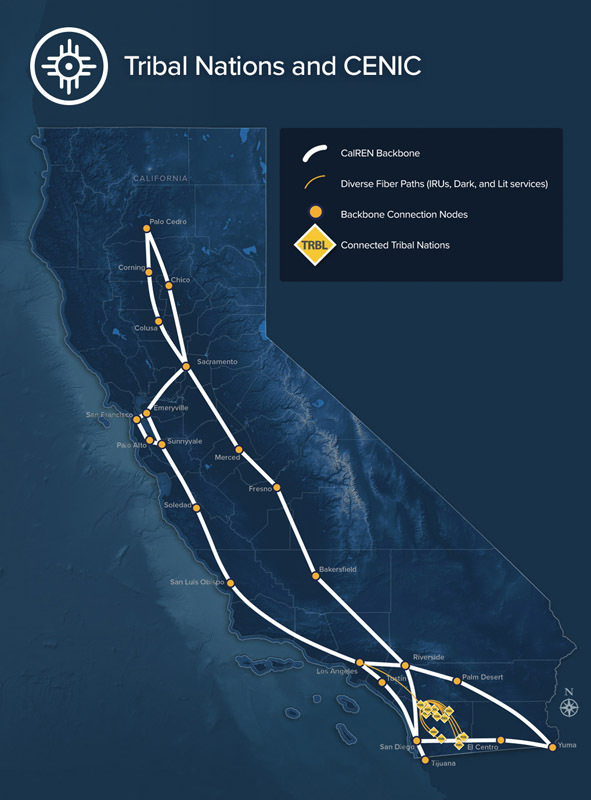- About
- Network
- Community
- Initiatives
- News
- Events
- Blog
- Publications
Tribal Nations and CENIC
CENIC is committed to connecting all of California’s federally-recognized tribes
Many of us take having a broadband connection for granted, using it for things like working remotely, attending a doctor’s appointment, or ordering groceries. However, for one-quarter of households on reservations, such a luxury is out of reach. While those people lack any broadband service at all, others still go without a reliable Internet connection.
That’s because Tribal lands are often in difficult-to-reach and environmentally sensitive areas. These geographies and associated building restrictions create unique challenges for providing connectivity.
CENIC is working to help change that through a commitment to connecting all of California’s 109 federally recognized Tribes. We partner with them to understand their individual geographic and construction parameters to connect homes and anchor institutions to broadband.
Tribal Communities in Action with CENIC
Understanding the benefits of high-speed connectivity and the challenges of connecting many Tribal lands, CENIC works closely with Tribes to understand their specific needs and create solutions that bring opportunities for growth and advancement.
In southern California, some of the broadband needs of Tribal communities have been addressed by a connection between the Tribal Digital Village Network (TDVNet) and the statewide fiber-based, high-performance CENIC backbone that provides TDVNet with extremely cost-effective backhaul connectivity. This connectivity allows TDVNet’s constituent networks to scale and support Tribal communities with affordable solutions and connections to resources of education and innovation that they would not have access to with other carriers
This initiative, led by the California Department of Technology and supported by CENIC’s LLC, GOLDENSTATENET, promises to build affordable open-access broadband connections through middle-mile infrastructure across California, and California Tribal communities will have a once-in-a-lifetime opportunity to connect to a truly future-facing infrastructure and gain access to the broadband-enabled collaborations and innovations that define many aspects of 21st-century life.
In 2024, CENIC recognized the Tribal Broadband Bootcamp for its success in fostering a network of Indigenous people working across Tribal lands to build broadband networks and develop best practices ensuring communities have high-quality Internet access. The Tribal Broadband Bootcamp’s annual 3-day workshops provide an invaluable opportunity for learning and sharing the knowledge and experience of Tribal networking experts and have had a significant effect on Tribal broadband access and adoption. Attendees at all levels of experience interact with network operators, industry professionals, and broadband experts who walk through what it takes to build a network and run an Internet Service Provider. Read the full story.
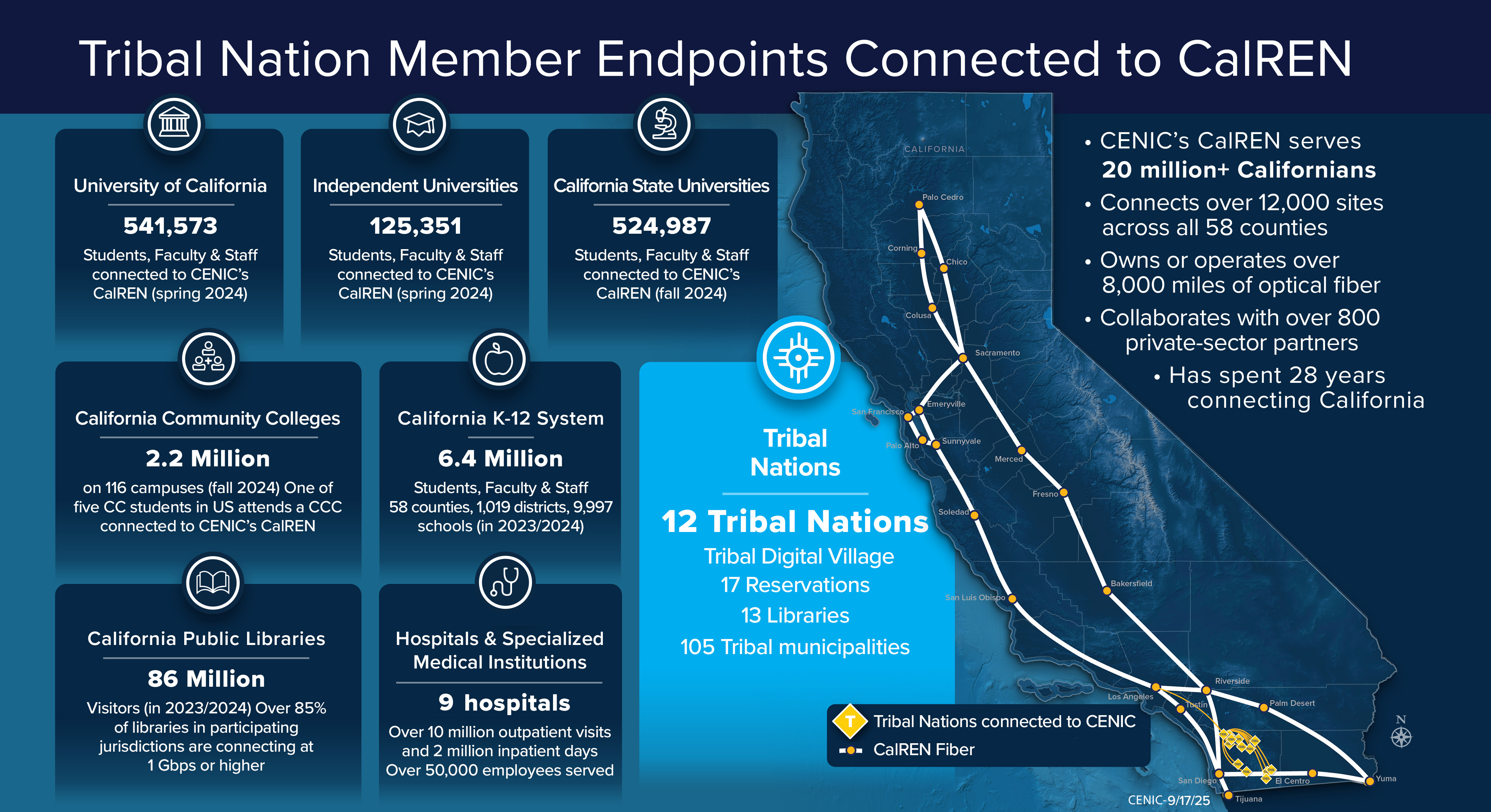
CENIC partners with national and international research and education networks, governmental networks, and commercial networks to expand access, working to support broad public access to the educational, research, and cultural assets that position California for a prosperous future.
Connecting Tribes across California
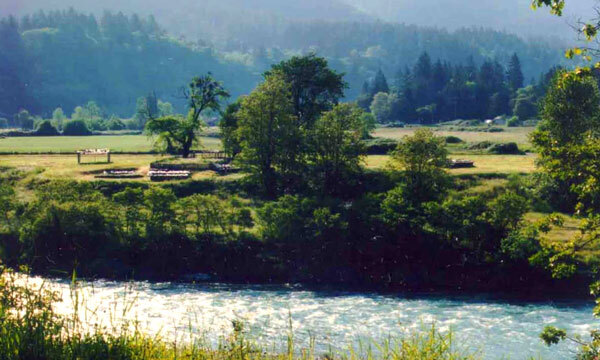
2014: Broadband Infrastructure Improvement Grant (BIIG) is funded
BIIG addressed the need for online testing in underserved areas, including the Hoopa Valley. Hoopa Valley is located on the Yurok Reservation in Humboldt County and is home to the Hoopa Valley Tribe.
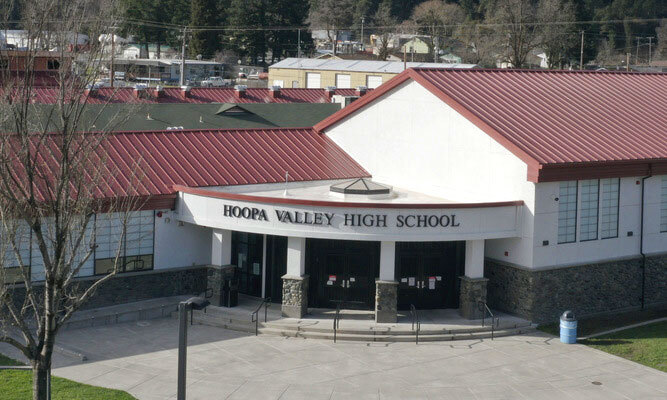
2016: CENIC connects the Humboldt County Office of Education to Hoopa Valley High School
The connection supports six additional schools and provides connectivity for 1,000+ students on the Hoopa Reservation.
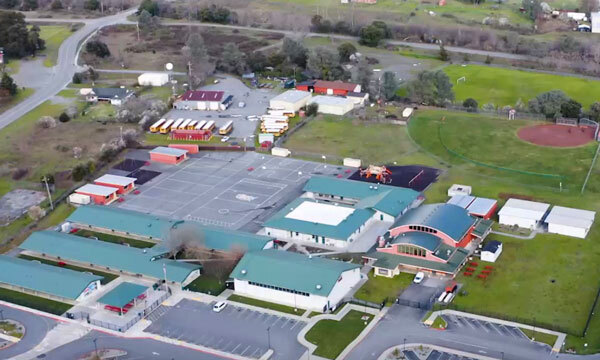
2018: Connectivity complete to all Hoopa Valley school sites
Increased bandwidth enables efficient administration of the computer-based California Assessment of Student Performance and Progress (CAASPP) test.
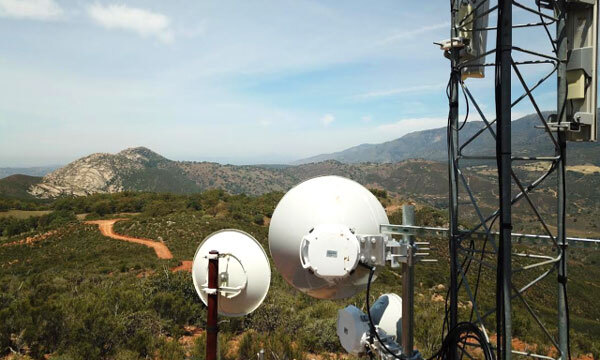
2018: Tribal Digital Village Network works with CENIC to bring connectivity to Tribal community buildings
Tribal Digital Village Network (TDVNet), a tribal consortium-owned Internet service provider in San Diego County, and CENIC established the first tribal connections in southern California.
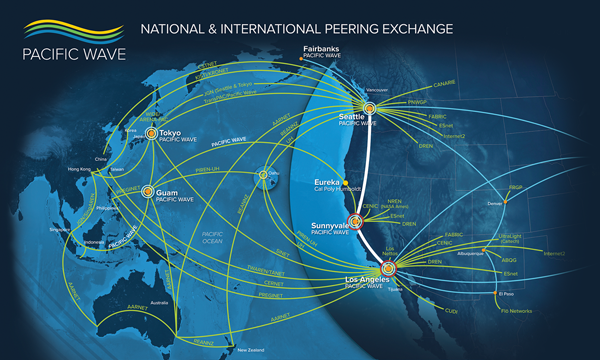
2020: Southern California Tribes connected to Pacific Wave
Tribes use Pacific Wave peering relationships, high-performance scientific networks, and ever-expanding global connectivity to engage with researchers and cultural preservation entities worldwide.
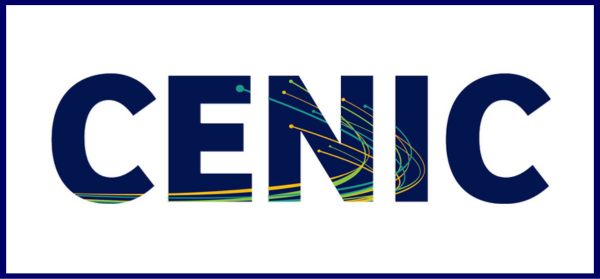
2022: Tribal Associate CENIC membership created
Membership is the model to support future Tribal members and their unique connection needs.
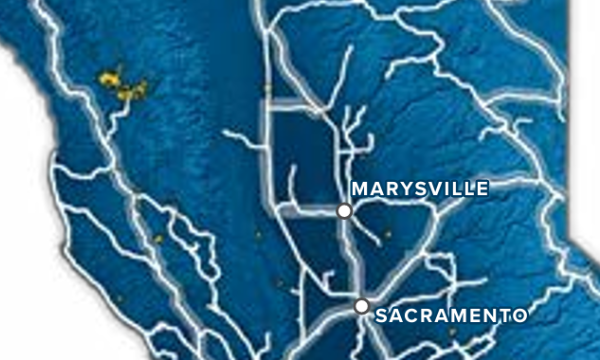
2023: Tribal Collaboration
CENIC collaborates with the Coyote Valley Band of Pomo Indians and the Cachil DeHe Band of Wintun Indians of the Colusa Indian Community to identify the best network solution for their needs.


